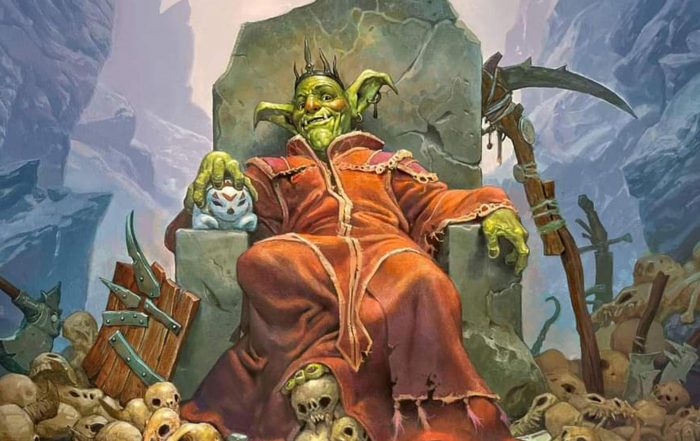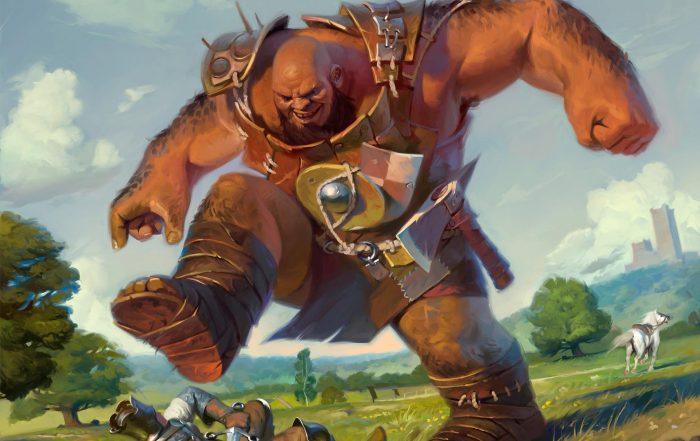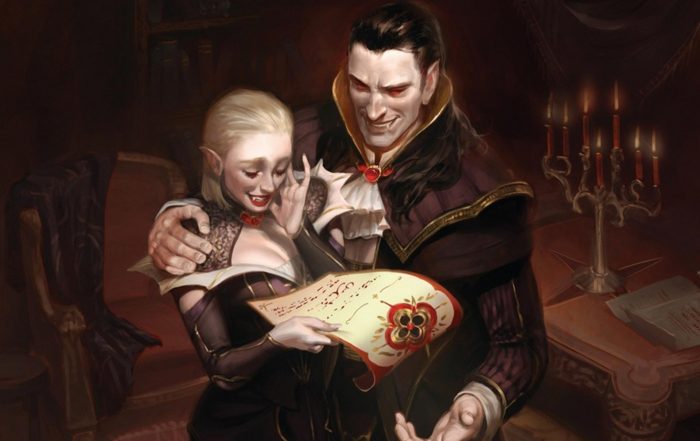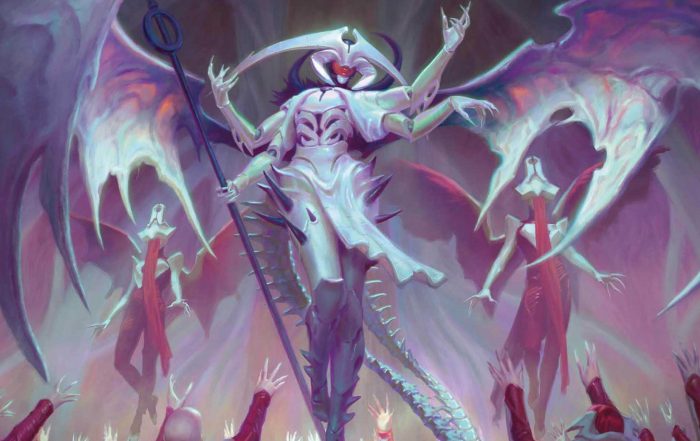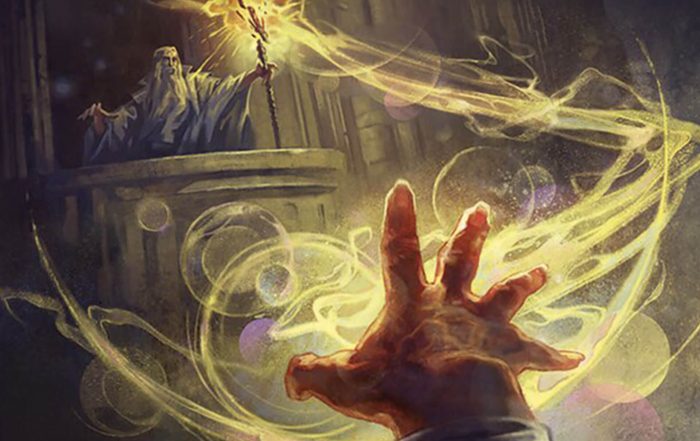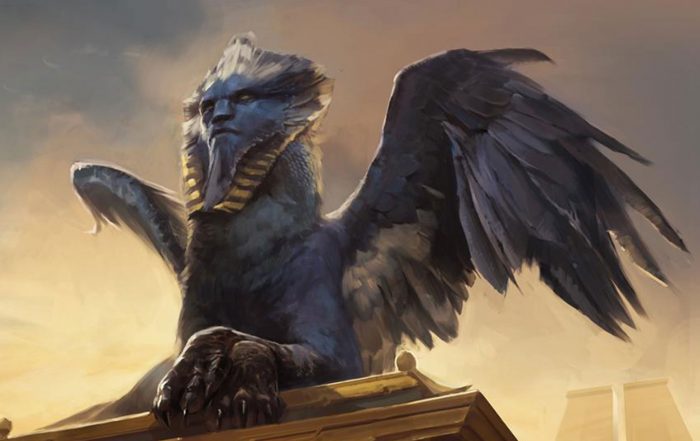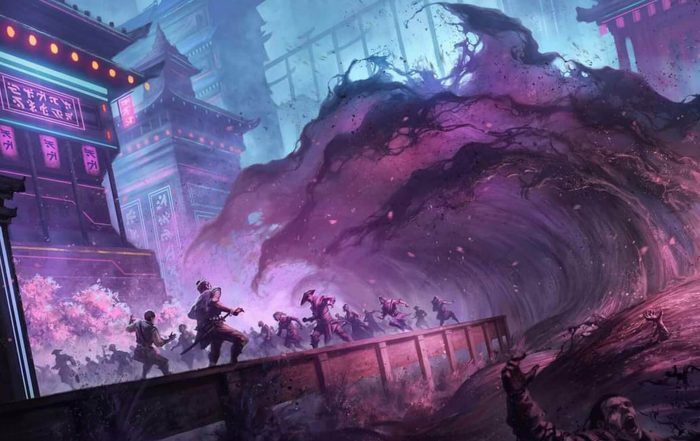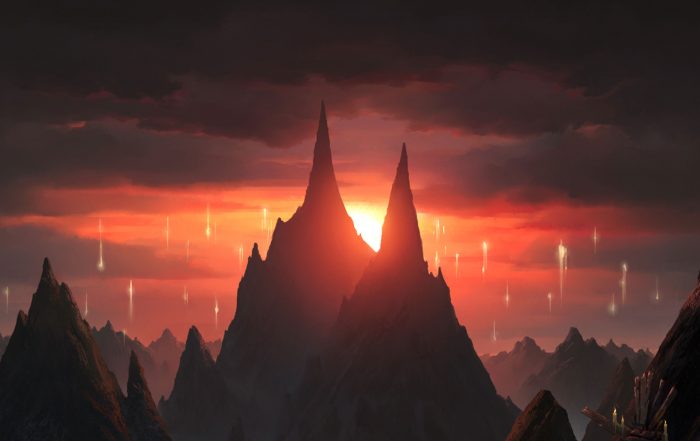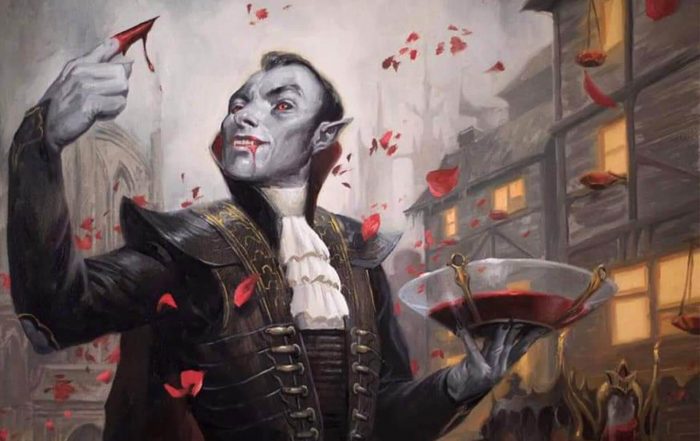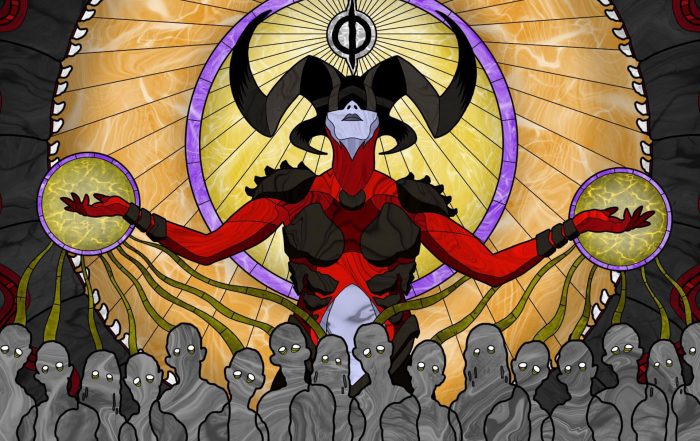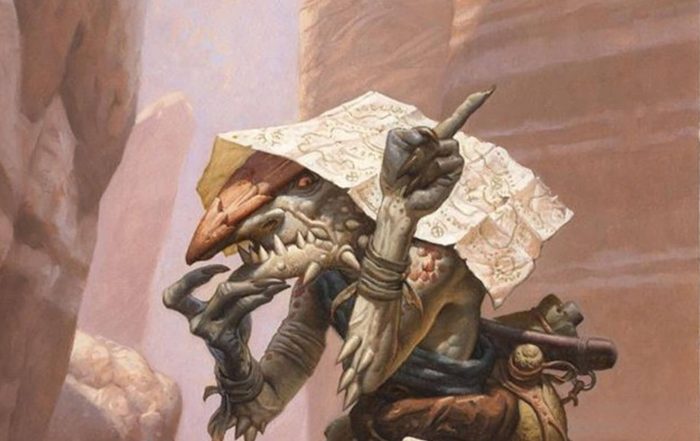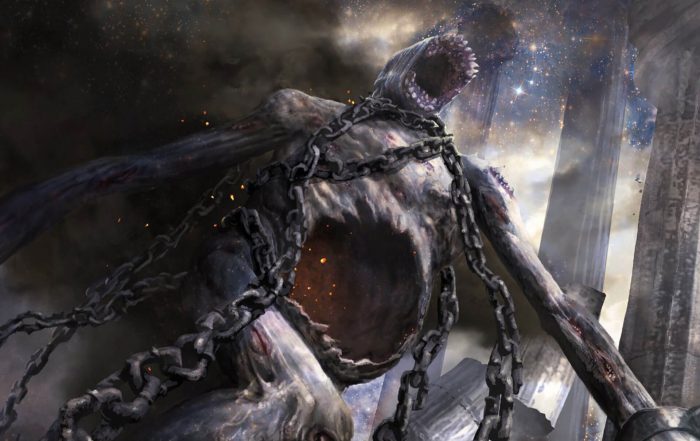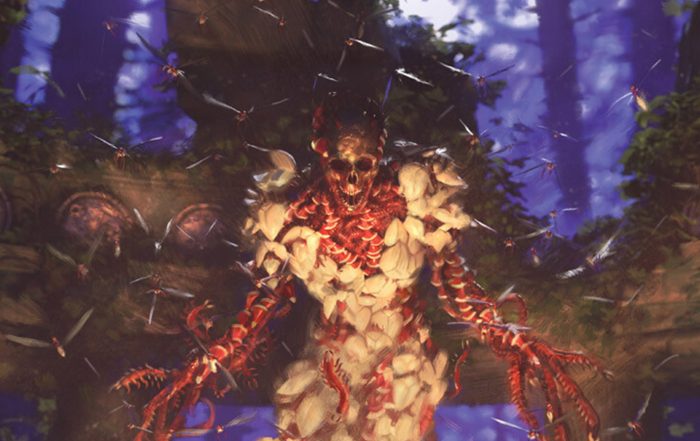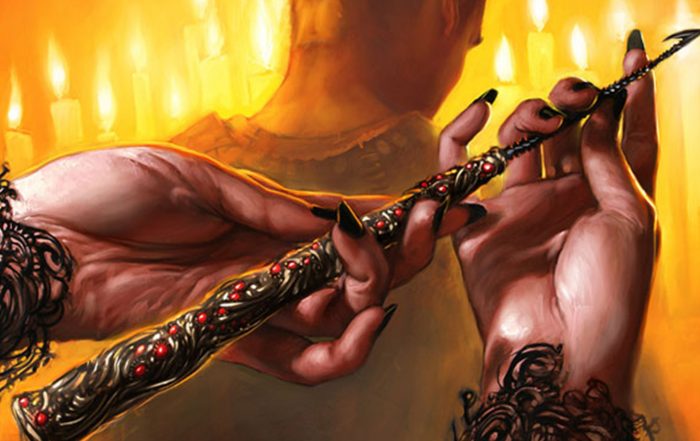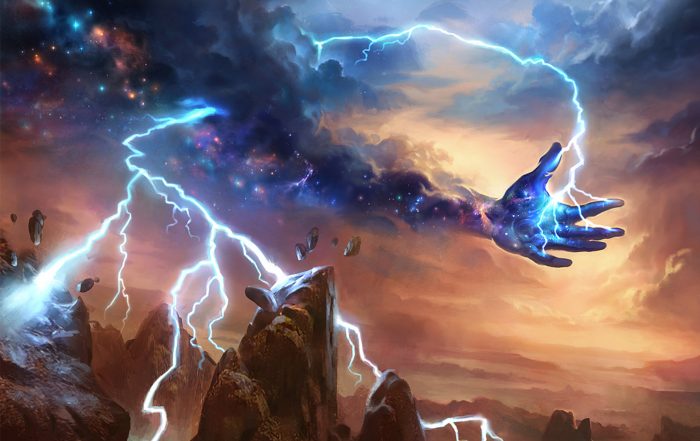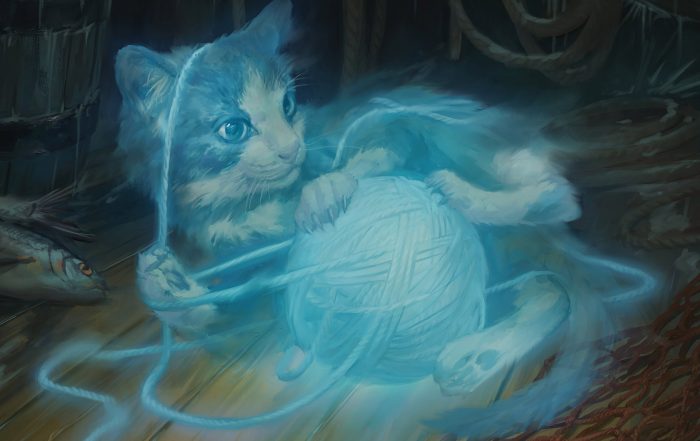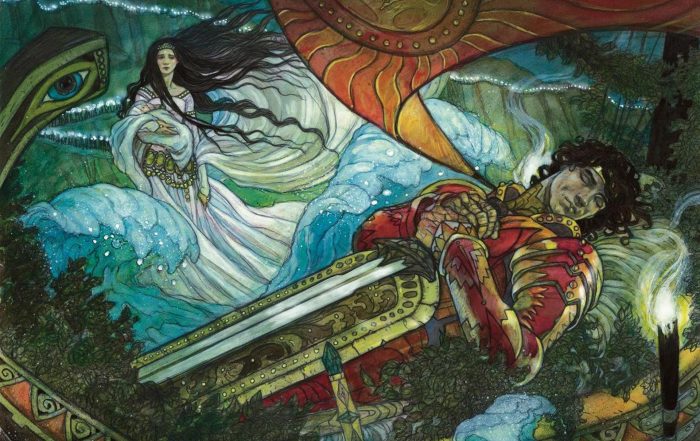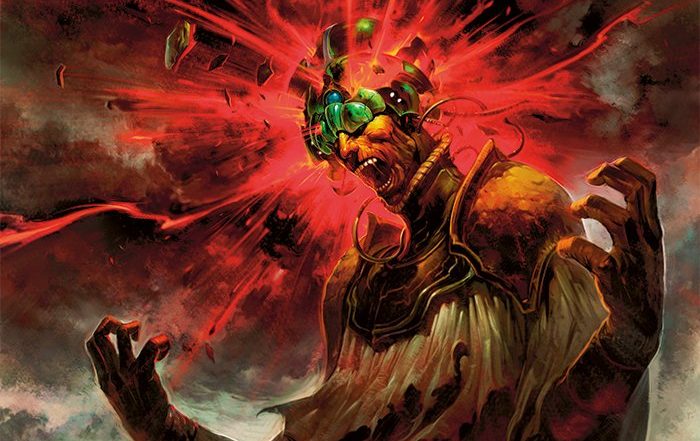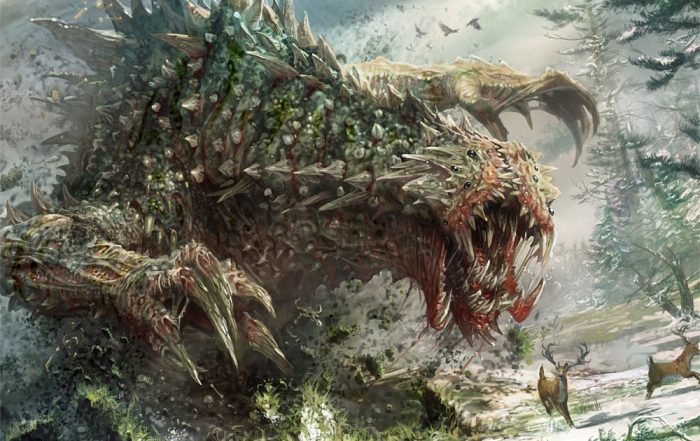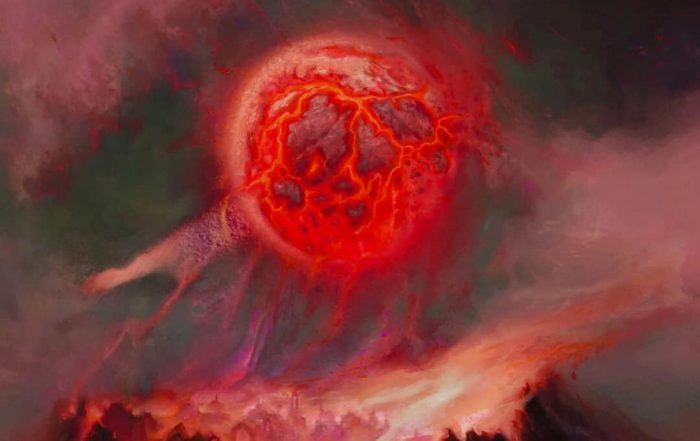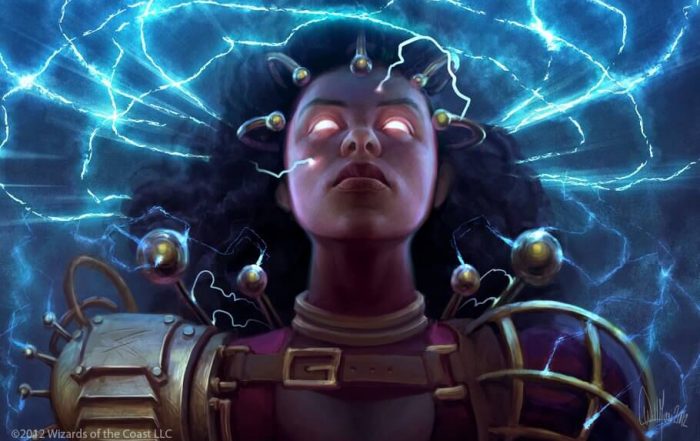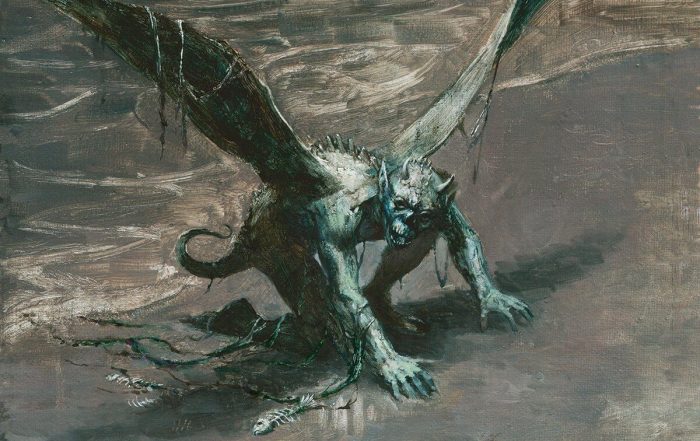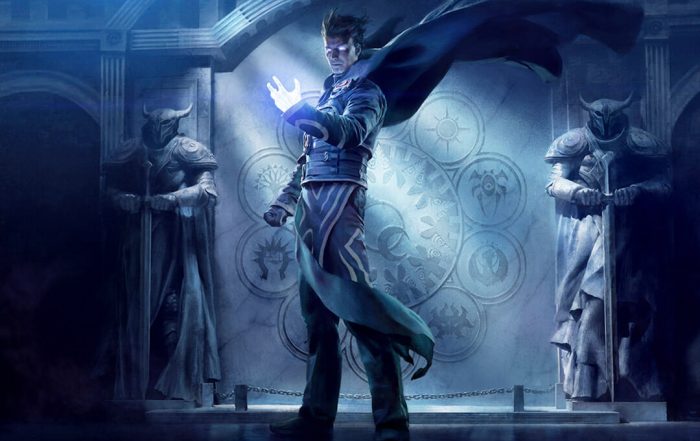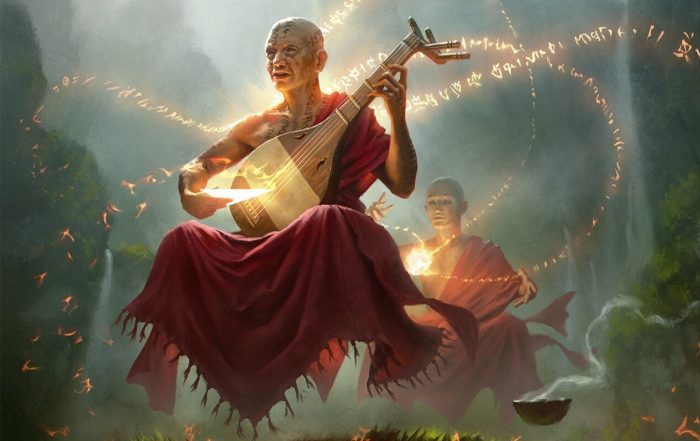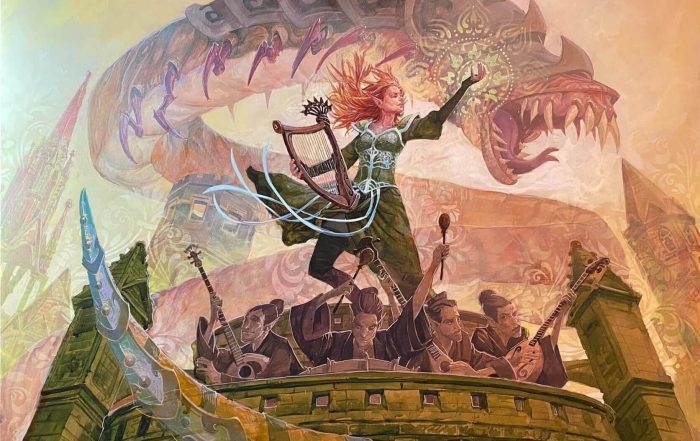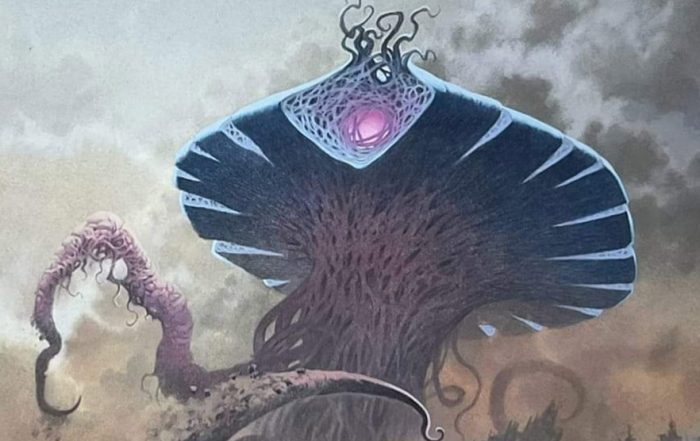Deck Spotlight Legacy: UW Omni-Tell
Legacy: Blue-White Omni-Tell
A Deck Primer
Author: Zen Takahashi
Hello everyone!
In my previous article, I alluded to how this article would be on the Eternal Masters event in Melbourne, Australia that I was planning to compete in at the end of July.
However, due to the COVID breakout in the city, all flights from New Zealand were cancelled, and I was unfortunately not able to make the event. It has since been delayed to September, but it is unlikely I will be able to compete in that either.
Instead, I will be going over a deck I’ve been playing at my local game store recently – Blue-White Omni-Tell! Not only do I believe this deck is competitive in the format right now, it is also one of the most affordable decks in the format, as it has zero cards from the reserved list!
Origins of Show and Tell
Show and Tell has been a key player in Legacy throughout its history, and its longevity is only matched by Storm as one of the format’s premier combo decks. In fact, when I first started playing Legacy ten years ago, the primary Show and Tell deck in the format wasn’t Sneak and Show, but instead it was Hive Mind!
Below is the decklist that Bryan Eleyet played to a second-place finish at Grand Prix Providence in May 2011.
Hive Mind – by Bryan Eleyet
Instants & Sorceries
Artifacts
Enchantments
Creatures
Lands
Although Sneak and Show did exist at the time, the deck wasn’t quite good enough yet as there just wasn’t a creature that was powerful enough to complement Emrakul, the Aeons Torn (early versions of Sneak and Show played four copies of Woodfall Primus!). However, this all changed with the printing of Griselbrand in Avacyn Restored, which then made Sneak and Show the best Show and Tell deck of the format.
Below is the current decklist that Sneak and Show master JPA93 has been crushing online tournaments with.
Sneak and Show – by JPA93
Creatures
Lands
While Sneak and Show continues to be the most successful Show and Tell build in the format, I have never been fond of the deck. My primary issue with it is its vulnerability to Karakas, but also I just believe that putting into play an Emrakul, the Aeons Torn with a Show and Tell can often go disastrously as your opponent can untap into a Teferi, Time Raveler or Jace, the Mind Sculptor or just combo off against you.
When I cast Show and Tell, I want to be able to win on the spot a very high percentage of the time, and Sneak and Show fails to do that.
Therefore, instead of the traditional Sneak and Show builds, my preference has always been with the Omniscience-based lists, often referred to as “Omni-Tell”.
The first player I believe to have built a competitive version of the deck was none other than Hall of Famer and world renowned deck builder Shota Yasooka, when he made the Top 8 of Grand Prix Kyoto with Blue-Red Omni-Tell in 2015.
Omni-Show – by Shouta Yasooka
Instants & Sorceries
Enchantments
Creatures
Lands
Since then, the most popular build of Omni-Tell has decided to opt for a Green splash instead, as Veil of Summer has been a significant addition to the deck as an answer against both discard spells and counterspells.
Omni-Tell by Kuranari-Jackpa
Instants & Sorceries
Creatures
Enchantments
Lands
Why White over Green?
Currently, the community consensus seems to be that the Blue-Green build of Omni-Tell is the most optimal right now. There is no doubt that Veil of Summer is a great card for the deck, as it answers two problematic disruption pieces – counterspells and discard.
However, a significant issue with the Green version of the deck is its difficulty in dealing with permanent-based disruption. This includes cards like Thalia, Guardian Thraben, Deafening Silence and Meddling Mage.
Often, these permanent-based cards are harder to fight through than one-off disruption like counterspells or discard, as they either make it significantly difficult or outright stop you from comboing off.
In addition, the Green build’s key tool for fighting against blue decks has traditionally been Carpet of Flowers, but the card has become worse since the printing of Prismatic Ending.
Therefore, my preference is for a White splash instead. Similar to the Green version, the deck is primarily blue-based, with the maindeck consisting of all blue cards except one – Teferi, Time Raveler.
I believe that Teferi is excellent in this deck, as it not only handles counterspells, but it can also deal with the previously mentioned problematic permanent cards before you look to go off.
Beyond that, Teferi’s first ability is also more relevant than you think, as some of the more problematic cards your opponent can put into play with Show and Tell are cards like Flickerwisp or Ashen Rider that answers Omniscience, but Teferi’s top ability lets you play all your sorceries at instant speed, so you can respond to their trigger by casting cards like Ponder, Sea Gate Restoration or Solve the Equation at instant speed to try to find a Cunning Wish to fetch a Sublime Epiphany and stop the trigger.
The primary draw to the White version is its access to Swords to Plowshares, which cleanly deals with problematic creatures like Meddling Mage and Ethersworn Canonist – cards that the Green version heavily struggles against. I am also a big fan of Lavinia, Azorius Renegade, which is effective against Force-effects while also being an efficient answer to combo decks like Elves, Oops All Spells and Karn Echoes.
Omni-Tell by Zen Takahashi
Instants & Sorceries
Artifacts
Enchantments
Planeswalkers
Creatures
Lands
My current decklist is primarily based on Nathan Lipetz’s, which I found in the Show and Tell discord channel that he runs. He has put a lot of effort into the archetype and has been one of the key architects behind the deck.
I highly recommend checking out the discord channel if you are interested in any version of Show and Tell, as he has a lot of resources on there and the community seems to be fairly active. You can find the link here.
Key additions to the deck
The two key additions to the deck over the past year have been Solve the Equation and Sea Gate Restoration.
Solve the Equation is the more important of the two, and I genuinely believe it’s a huge addition to the deck, and it’s surprising to me that most people are not playing it outside those piloting Nathan’s list.
Omni-Tell is essentially a three card combo (Show and Tell + Omniscience + Cunning Wish/Emrakul), and often against a blue deck, a four card combo as you also need a protection spell alongside it.
Solve the Equation can essentially fill the role for three of those four combo pieces, as it can either fetch a Show and Tell or Force of Will/Orim’s Chant, or act as a sorcery-speed Cunning Wish once you have Omniscience in play.
Compared to Nathan’s list, I’ve opted to build my deck more around the flexibility of Solve the Equation by adding an Orim’s Chant and Swords to Plowshares as toolbox targets.
Orim’s Chant is great to get against control decks for the combo turn (against Daze decks you’d generally rather fetch a Force of Will), and Swords to Plowshares is a nice target to have against hatebears like Gaddock Teeg and Sanctum Prelate.
Solve the Equation versus Cunning Wish
One thing to note, is looking at the decklist, it is easy to assume that the fourth Solve the Equation is better than a Cunning Wish since it can act as a Wish anyway when you combo, but the instant speed on the Wish is crucially important for playing against hate cards.
For example, against Flickerwisp or Ashen Rider, you’ll need to Cunning Wish for a Sublime Epiphany with their trigger on the stack, or against Deafening Silence the common sequence of play is to put Omniscience into play, cast a Cunning Wish on their turn and get Shared Summons, and then on your turn cast the Summons to fetch Venser and Emrakul for the win.
The importance of Sea Gate Restoration
The other significant addition to the deck has been Sea Gate Restoration. I see some lists not playing this either, but I personally love the card – similar to Solve the Equation, it fills many roles.
It can act as a land, a card you can pitch to Force of Will or a win condition as often an Omniscience with a Sea Gate Restoration is enough to win the game, especially as you can chain multiple copies.
While the card is not a crucial roleplayer, its flexibility to fill very different gaps (a land and a win condition are generally on the opposite ends of the spectrum) makes it a staple in my view.
How the deck is positioned in the field
Overall, the simple way to describe this deck’s positioning is that it is bad against decks with Daze and combo decks that are faster and have more disruption.
This means that its bad matchups are decks like Blue-Red Delver, Jeskai Saga, Doomsday, Reanimator and Storm.
Its good matchups are basically everything else – fair decks like Bant Miracles and Death and Taxes are favourable for the deck, as are non-blue decks like Mono Red Stompy and Lands.
I believe that this deck isn’t well positioned for Magic Online due to the heavy presence of Blue-Red Delver and Jeskai Saga, as well as all the ringers who play Doomsday, but I like it for paper events where you generally see less blue decks and more traditional legacy decks like Maverick and Goblins.
Sideboard Guide
Blue-Red Delver
- Blue-Red Delver is one of the toughest matchups for the deck. They have so much free disruption with a playset of Daze and Force of Will in the maindeck, and usually one or two Force of Negation in the seventy-five. Post-board, they generally have three or four copies of Pyroblast. All this disruption is then backed up by a quick clock in the form of their twelve one-drop creatures.
- The key to this matchup is to basically figure out when they’re going to kill you, and try to win just before they do. It’s going to take a lot of protection spells to fight through their disruption, which takes time to set up. Try to buy as much time as you can (hence why I like having the playset of Swords in the matchup), and go for it at the very last minute with the hope you’ve mounted enough of a defense.
- It may look counterintuitive to sideboard out Force of Will and Teferi against a deck with counterspells, but that’s because the sheer amount of disruption they have means you can’t fight through them with card disadvantage and Teferi is useless if you cannot protect it as you generally cast it the turn prior to going off.
Bant Miracles
- Although Bant Miracles (read my article on the deck here) also has free counterspells, the matchup is significantly easier as they do not have Daze and a clock alongside it. In fact, this is one of your best matchups, as in pre-board games they just have six forces as interaction spells, and you can basically ignore the rest of their deck. Post-board, they do have access to some tools, but the sideboard cards you gain are more powerful.
- The key in this matchup is to be patient. They do not have a clock, so there is no reason to rush anything unless you’re on the brink of death. Take the time to build up enough protection.
- Our sideboard tools are excellent for this matchup – especially Lavinia, Azorius Renegade and Boseji, Who Shelters All. I generally like to shave Preordains and Lotus Petals as the games go long, and Force of Will is okay, but you never want multiple copies as all your cards are good, so you don’t want to pitch them away. I like to keep the Swords to Plowshares in the main as a Solve target for their Hullbreacher.
Death and Taxes
- This is the main matchup where Omni-Tell shines much more than Sneak and Show. The latter struggles a lot against Karakas, while we almost do not care about the card at all. Just make sure to never put an Emrakul, the Aeons Torn directly into play with Show and Tell.
- The key cards to be aware of when you cast Show and Tell are Flickerwisp and Sanctum Prelate. The former can exile your Omniscience for the turn, which most of the time is fine since you can just win the following turn, but is problematic if they have lethal on board. The way to play around it is to Cunning Wish for a Sublime Epiphany with the Flickerwisp trigger on the stack, and counter it. Sanctum Prelate is a bigger issue if they name three, as you then cannot cast Solve the Equation and/or Cunning Wish for the win. You can try to play around it by having either Venser, Emrakul or Swords to Plowshares in hand to deal with it.
- The sideboarding in this matchup is fairly straight forward. I like to shave the Preordains as I don’t want to be overloaded on cantrips against Thalia, Guardian of Thraben and Spirit of the Labyrinth. The key card to be aware of post-board is Deafening Silence. Funnily enough, in my last event I won through a Deafening Silence by bouncing it with a Venser after I put Omniscience into play, and then casting a Teferi to bounce my Venser and creating an infinite loop to draw my whole deck.
Elves
- This matchup is close, but ultimately favorable, as you are about the same speed, but you have ways to interact pre-board while they do not. Generally, you only want to counter the cards that are threatening to win the game, i.e. Glimpse of Nature and Natural Order. I never thought I would say this, but you can actually ignore Wirewood Symbiote here.
- The sideboarding is fairly straightforward. I am a big fan of Lavinia in this matchup, as it stops an early Natural Order or Green Sun’s Zenith for Archon of Valor’s Reach, which are primarily what you are worried about. The main target for Swords to Plowshares is Allosaurus Shepherd, though good Elves players will play around the removal by essentially using it as a pseudo-Veil of Summer by holding it until they want to resolve a key spell.
- It may look strange to sideboard in Disenchant against Elves, but enough lists play Deafening Silence and/or Choke in the sideboard that I like to have access to it as a Solve target.
Conclusion
I hope you enjoyed this article as I covered in depth my favorite Show and Tell deck in the format right now – Blue-White Omni-Tell! Although this deck isn’t exactly well positioned online right now due to the presence of Blue-Red Delver and Jeskai Saga, I believe it’s a good choice for paper events, where there’s historically less blue decks and more traditionally played archetypes. The deck is also a great choice for anyone who is new to the format, as the deck is fairly straightforward to play once you have learned the key interactions, and it is one of the cheapest decks in the format!
My next article will likely be next month, though I haven’t decided on what I will write about yet. If you have any topics you’d like me to cover, or any questions or thoughts about this article, do not hesitate to reach out to me in the comments or on Twitter!
Till next time!
Zen Takahashi
@mtgzen on Twitter
About the Author
Zen Takahashi is a seasoned writer and mainstay on the Three for One Trading writing team. He is an avid Eternal player from Auckland, New Zealand and enjoys competing in local Legacy events and playing Old School over webcam with friends.
Previously, he was a Silver Pro for multiple years and his results included five Grand Prix Top 8s, a 27th place at Pro Tour Amonkhet, three consecutive online Regional PTQ wins, and he co-created the Modern Dredge deck.
Nowadays though, he primarily plays Legacy, his favorite format, but he also branches out into Pioneer and Modern.

More Articles by Zen Takahashi
AUS/NZ Regional Championship Report – Top 8
Zen qualified for the Pro Tour with Bant Toxic at the Australian/New Zealand Regional Championship! Now here’s all about his tournament experience, the preparation, the team and the many, many deck choices available.
Bant Toxic Guide
Learn all about Bant Toxic in Standard with Zen: The game plan, what hands to keep, how to sequence your turns, tips and tricks, and how to approach each of the major matchups.
Mono Red in Standard
The perfect preparation for our next Store Championship! Zen gives you all the information you need to win in Standard with Mono Red Aggro. As usual he gives you a small run down of the deck together with a lot of different sideboard guides against almost every meta deck of the format.
Rakdos Midrange in Pioneer [Update]
Mistakes have been made and lessons have been learned, so it’s time for an update on Zen’s Rakdos Midrange deck in Pioneer. This time with a very detailed matchup guide on the current Pioneer Meta with sideboard options for each popular deck you’ll encounter.
World Championships 2023 Report
Zen Takahashi is back with a full report of his time during the Magic: The Gathering World Championships 2023 in Las Vegas! Learn everything about his intense preparations, his great team, his tight schedule and tasty dinners.
Rakdos Reanimator Guide [2023]
Zen Takahashi played Rakdos Reanimator at the Magic: The Gathering World Championships in Las Vegas! In his latest article, he goes in-depth about how to play the deck, what to look out for in popular matchups and explains how to make best use of The Cruelty of Gix.
The Lord of the Rings Pro Tour Report
Zen Takahashi is back with another tournament report! This time it's all about Lord of the Rings in Barcelona. In this detailed article, he goes over his draft preparations and the overall fantastic weekend with his team and friends.
Modern Living End Primer
Zen Takahashi played Living End during the Lord of the Rings Pro Tour in Barcelona. Now he's ready to share some insights on this powerful Modern deck including the card choices, what hands to keep and how to sideboard against different opponents.
Regional Championship Report – Sydney
Zen Takahashi played Mono White Humans in Pioneer during the Regional Championships in Sydney! Find out all about what deck he played, what useful tips and tricks he had up his sleeves and how it all went down in his latest article! Bonus insider info on where to get the best truffle pasta in Sydney!
Pro Tour March of the Machine Tournament Report
Zen Takahashi writes about his experience during the Pro Tour in Minneapolis! Here you can read all about what deck he played, his preparation and a full report on the Pro Tour weekend with his team.
Rakdos in Standard
Our author Zen Takahashi competed at the Pro Tour in Minneapolis, shortly before re-qualifying for another Pro Tour. Both times he played Rakdos: Reanimator and Midrange! In his latest article, he compares both experiences and goes over each of the two decks in detail.
Standard Grixis Midrange Primer
Zen won the Australasian Championship with his Standard Grixis Midrange deck a few days ago. Lucky for us, he didn't take a break and wrote an in-depth primer for the deck including sideboard tips and card choices for us! Prepare yourself for future Regional Championships or Qualifiers, because you'll be either playing this deck or playing against it.
Australasian Regional Championships Report
Zen Takahashi won the Australasian Championship and qualified for the Pro Tour and the World Championship! Now we are getting an in-depth look into how he prepared for the tournament and how the games played out in an old-fashioned tournament report.
Boros Burn in Modern
Our author Zen Takahashi is feeling nostalgic, so it was time for a break from Pioneer and time for Modern Burn, Modern Boros Burn, to be precise! As usual Zen gives you a detailed overview of the deck, nice tips and tricks on how to maneuver it around the Modern meta decks and a useful sideboarding options, based on his experience.
Rakdos Midrange in Pioneer
Zen Takahashi is not done with Pioneer yet! For the Regional Championschip in Sydney, he and his team of over 10 other players tested different decks extensively until they came up with their own twist on the popular Rakdos Midrange deck.
Mono White Humans in Pioneer
Zen Takahashi takes a closer look at his newest favorite deck in Pioneer: Mono White Humans! As usual, you can expect in-depth tips and tricks as well as a sideboard guide from Zen, who was already very successful with his Pioneer decks in his Regional Championship Qualifiers.
Best Cards in Modern – Multicolor [2022]
We asked our seasoned team of authors a tough question: What do they think are the best ten multicolored cards in Magic the Gathering's Modern format. We then went a step further and created a Top 5. Learn what they think about the very best cards of one of the game's most popular formats.
Best Cards in Modern – Lands [2022]
We asked our seasoned team of authors a tough question: What do they think are the best ten lands in Magic the Gathering's Modern format. We then went a step further and created a Top 5. Learn what they think about the very best cards of one of the game's most popular formats.
Best Cards in Modern – Artifacts [2022]
We asked our seasoned team of authors a tough question: What do they think are the best ten artifacts in Magic the Gathering's Modern format. We then went a step further and created a Top 5. Learn what they think about the very best cards of one of the game's most popular formats.
Mono Red Primer for Pioneer
This time, Zen Takahashi writes in depth about his Regional Championship Qualifier Deck: Mono Red in Pioneer! That means we get a Primer for Mono Red Burn and Mono Red Frenzy. He also doesn't spare any details about key matchups in Pioneer and helps you to play your way around them!
Mono Blue Spirits in Pioneer
Zen Takahashi can't get enough of Pioneer, which means we have another great Pioneer Primer for you: Mono Blue Spirits! Read all about mulligans, sideboarding and most importantly: How to sequence your turns.
Best Cards in Modern – White [2022]
We asked our seasoned team of authors a tough question: What do they think are the best ten white cards in Magic the Gathering's Modern format. We then went a step further and created a Top 5. Learn what they think about the very best cards of one of the game's most popular formats.
How to Build Mono Red in Pioneer
After the success of his Blue-Red Ensoul article, Zen is back with another Pioneer primer: Mono Red! In his latest work, he excessively tested Devotion, Wizard and Burn decks. You can find all his discoveries and recommendations right here:
Legacy Reanimator 2022
If you are looking for a Reanimator Primer in Legacy, look no further! In his article, Zen Takahashi gives you everything you need to know about Reanimator: Which hands to keep? What are your opponents playing? How to sideboard? All these questions and more will be answered right here.
Blue-Red Ensoul in Pioneer
After a longer break, our author Zen Takahashi is excited to get back into Pioneer and crush the first PTQ season with his version of Izzet Ensoul. You can read all about the new and old decklist as well as mulligan strategies and other tips right here!
Best Cards in Modern – Green [2022]
We asked our seasoned team of authors a tough question: What do they think are the best ten green cards in Magic the Gathering's Modern format. We then went a step further and created a Top 5. Learn what they think about the very best cards of one of the game's most popular formats.
Auckland Eternal Weekend Report
Our author, Zen Takahashi, spent an Eternal Weekend in Auckland where he played tournaments of Vintage, Old School and Legacy. Real Power Nine, no proxies allowed! You can read all about what decks he played and how it went right here on our blog!
Best Cards in Modern – Red [2022]
We asked our seasoned team of authors a tough question: What do they think are the best ten red cards in Magic the Gathering's Modern format. We then went a step further and created a Top 5. Learn what they think about the very best cards of one of the game's most popular formats.
Top Ten Decks in Legacy 2022
In our latest article, Zen Takahashi analyses the best Legacy decks and comes up with his Top 10 Legacy decks of 2022. If you are curious to find out if your deck made the cut, or simply interested in what's going on in Legacy these days, keep on reading right here!
Best Cards in Modern – Black [2022]
We asked our seasoned team of authors a tough question: What do they think are the best ten black cards in Magic the Gathering's Modern format. We then went a step further and created a top 5. Learn what they think about the very best cards of one of the game's most popular formats.
Rainbow Dredge in Modern
Today’s article is all about Dredge in Magic: The Gathering, more specifically, Dredge in Modern. Zen Takahashi, one of the creators of Rainbow Dredge, took a look at the history of the deck and its current state in the meta. He’s also going over different iterations of the deck, as well as all the current sideboard options available.
Best Cards in Modern – Blue [2022]
We asked our seasoned team of authors a tough question: What do they think are the best ten blue cards in Magic the Gathering's Modern format. We then went a step further and created a top 5. Learn what they think about the very best cards of one of the game's most popular formats.
Blue Zenith in Legacy
Zen takes a look at a new deck that did surprisingly well in recent Legacy online events. Green Sun's Zenith and blue Counterspells are the engine in this midrange powerhouse.
Deck Spotlight Modern: Golgari Yawgmoth
Zen takes us to a wonderful world full of creatures, combos and one ofs in the Magic the Gathering Modern format. Chord of Calling is the name of the game. Let's go!
Deck Spotlight Legacy: UW Omni-Tell
Zen talks about one of his favorite decks for paper Legacy: Blue-White Show and Tell Omniscience combo. The best thing about it: It does not need a single card from the restriced list!
Bant Miracles in Post-Modern Horizons 2 Legacy
Zen Takahashi shares his thoughts about his favorite Legacy Deck – Bant Miracles in a Post-Modern Horizons 2 world. He explains which cards he added from the new set and how matchups have changed.




